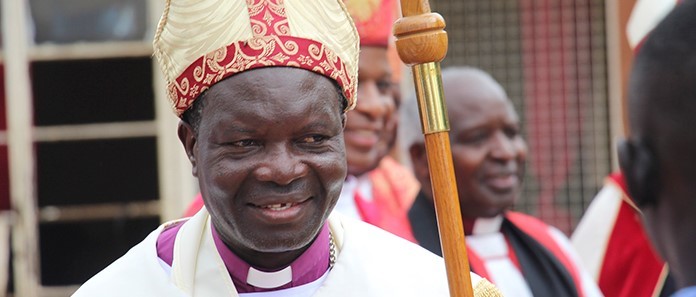Archbishop Justin Badi Arama, the Primate of the Episcopal Church of South Sudan (ECSS) has rejected a high court ruling over the ongoing leadership dispute in Jonglei describing it as a wrong decision.
ECSS split following the August defrocking of Bishop Reuben Akurdit of the church’s Jonglei internal province by Archbishop Badi. One camp welcomed the defrocking, while the other insisted the defrocking over alleged canonical disobedience and misconduct was nonprocedural. The Akurdit camp went to the High Court in Juba to challenge his removal.
In the last two weeks, the Juba court urged the ECSS to stay the defrocking and appointment of any successors pending a final verdict on 5th January 2020.
“Such court decisions are incorrect. Church administrative issues have nothing to do with courts. Appointments, suspensions, and dismissals of people are done within the ECSS constitution, so they do not require courts. Never before had it happened that people consult courts for dismissals or reinstatements of priests,” Archbishop Badi told Radio Tamazuj.
The head of the ECSS said any decisions would be taken by the church. “Any decision is taken by the church and its committees. Leadership dispute exists no more in Jonglei. In November, a successor for the person defrocked on August was brought,” he stressed.
The clergyman urged the faithful to desist from violence and embrace God’s words.
Maluak Philip, the secretary for the ECSS-Akurdit faction, welcomed the court decision, saying they sought a settlement to the dispute outside the ECSS because the church leadership has been acting unilaterally.
Meanwhile, Anyang Philip Ngong, a renowned lawyer in Juba, said the church seeking a settlement in a court was shameful.
“We know the defrocking of Akurdit by the church leadership was purely administrative, and I believe it was within the ECSS laws. But Akurdit insisted he was wrongly removed. Badi is the head of the ECSS, he can remove anyone within his mandate,” Anyang said. “But if anyone thinks they have been wrongly removed, they should complain through the church councils, rather than the High Court. What has been happening is shameful. And as a member, I had to pull out a year ago.”
An activist in Bor, Bol Deng Bol, condemned the Juba court decision, “there is a provision for an ECSS tribunal within the ECSS constitution. The tribunal is the right avenue to handle any dispute. What I know is that the Court will throw out the case. Article 8 of the constitution separates the state from religion. No one has authority over the church.”




